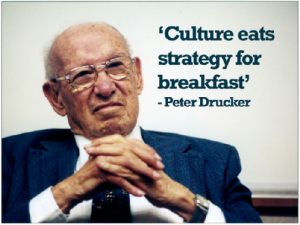Podcast: Play in new window | Download (Duration: 17:03 — 15.6MB) | Embed
Learning To Pause Allows Growth To Catch Up To You!
Follow effective action with quiet reflection. From the quiet reflection will come even more affective action – Peter Drucker
The Power of Pausing
- Reflection Turns Experience Into Insight – It is said that Julius Caesar was the first to state that “Experience is the best teacher.” Perhaps the better way to state the case is that “Evaluated Experience” is the best teacher. I wonder how many industries could have survived the horseless carriage era if they would have paused and evaluated the trajectory of their company in the face of the automobile revolution?
- Everyone Needs A Time and Place To Pause – If someone is going down the wrong road they do not need motivation to speed up. They need to stop! Stephen Covey states that we are all living in the noise of “White Water” where there is a constant churning and boiling of sound and chaos. We all are busy and need to created a place where we can go to just THINK! When and Where will we go to a place to reflect on “life markers” that have change the direction of our life. A life marker with careful reflection should turn into a like maker!
- Pausing With Intention Expands and Enriches Thinking – Leaders tend to be action oriented in the normal busyness of life is factored by ten. They are often so busy they do not take the time to reflect. Henri J M Nouwen stated “When you are able to create a lonely place in the middle of your actions and concerns, your successes and failures slowly lose some of their power over you.”
- When You Take Time To Pause, Use Your “I’s”
- INVESTIGATION: Galileo stated that all truth is easy to understand once they are discovered. The point is to discover them. That takes investigation.
- INCUBATION: This is about taking life’s experiences and slow-cooking them through a mental process of thinking and reflecting. For example wit the use of the notes app or other devise you can record ideas and thoughts that can stay with you for days to ponder and reflect upon. For example “If you do not know where you are going, any road will take you there.” “If you are not at the table, then you are on the menu.” “If you aim at nothing you will hit every time.”
- ILLUMINATION: Jim Rohn states that you should replay the tapes of the day’s performance. The results should either applaud you or prod you!
- ILLUSTRATION: Good ideas are like skeletons that need meat placed upon the frame. Illustrations only come from careful observation of life. Many people see but few are looking!
LINKS
Shepherds Advantage Leadership Podcast is now on iTunes – SUBSCRIBE
FREE GIFT – “The Art of Balancing Candor With Care” – Click on the icon at the bottom of the page
Executive Coaching Premier Service – Private message me for details on this customizable service
Music: “Gratitude Mood” by David Arivett. You can learn more about his music by clicking on his name. THANKS DAVID!





